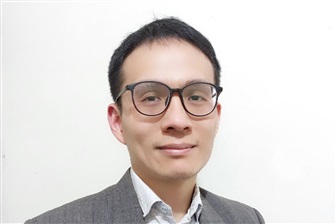As the global manufacturing industry experiences diversification rarely seen in previous decades, Samsung Electronics has spearheaded the relocation wave. According to DIGITIMES Research, the significant investment by Samsung in Vietnam has created a reciprocal relationship between the company and local governments, representing a huge difference in Samsung's investments in Vietnam and India.
According to Yen Chou, an analyst and project manager at DIGITIMES Research, South Korean suppliers moved to Vietnam a least a decade ago, with massive investments beginning in 2016, when South Korea agreed to deploy the THAAD missile defense system by the US, arousing fierce opposition from Beijing and anti-Korea sentiment among the Chinese population.
Yen further said that South Korea-based companies, unable to reduce their reliance on China overnight, decided to invest in Vietnam, which is geographically closer to China-based suppliers of key electronics components. With massive investment comes more investment, resulting in a relatively matured and vertically integrated supply chain in Vietnam than in India for Korea-based companies.
Korea-based memory makers, such as Hanyang Digitech and Hana Micro Vina, assemble memory modules in Vietnam before shipping them to their primary customers like SK Hynix and Samsung. Additionally, Samsung Electro-Mechanics' manufacturing facility for FC-BGA is expected to begin mass production in July 2023, further enhancing Korean companies' vertical integration in Vietnam.
Aside from being more vertically integrated, the clustering effect of Samsung's suppliers in Vietnam is more apparent than in India, as Samsung's suppliers are geographically close to each other in the Southeast Asian country.
According to Chou, although Samsung has maintained a close relationship with the Indian government, the interaction level is still lower than that with Vietnam, with Lee Jae-Yong, executive president at Samsung Electronics, frequently visiting Vietnam and meeting with high-level Vietnamese officials, such as Nguyễn Xuân Phúc or Phạm Minh Chính, in Vietnam or South Korea. Chou further said Vietnamese local governments are willing to share Samsung-related news on their official websites due to Samsung's significant contribution to local economies, be it exports or job creation.
On the other hand, Samsung periodically releases information disclosing its progress on supply chain localization on its Vietnamese website, including the numbers of tier-1 and tier-2 suppliers, which Samsung does not do in India.
Still, Chou clarified that most Vietnam-based suppliers collaborating with Samsung are engaged in low-level materials, plastic products, or packaging solutions, as there were no influential local EMS giants in Vietnam as in India, such as Dixon Technology, for Samsung to outsource part of its product manufacturing.
Chou said that while China-based EMS providers like Wintech are setting up manufacturing facilities close to Samsung's plants in Vietnam, it is possible that Samsung outsources to Chinese EMS players or India-based EMS companies for assembling before shipping worldwide.
Although Samsung focuses more on investments in Vietnam, India will play a larger role in the mid-to-long term, at least for mobile phone manufacturing. Chou said that according to Samsung's roadmap, Samsung's Noida facility located in Northern India is expected to produce up to 108 million phones, close to the 127 million units made in Samsung's two plants in Vietnam and accounting for one-third of Samsung's total mobile phone production of 3.78 million units by 2026, adding that Samsung's roadmap may change depending on global demand for handsets.

Credit: DIGITIMES Research
About the analyst
Yen Chou received a master's degree from the Graduate Program for Political Economy at National Cheng Kung University. He worked as an assistant researcher at the Institute for Physical Planning and Information and as an analyst at DIGITIMES Research. His research focuses on Samsung's global investment and operation, the electronics industry in Vietnam, and the display industry in South Korea.



